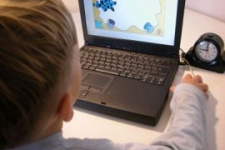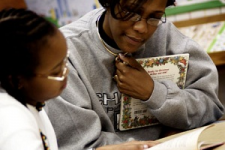Creating a Student Acceptable Use Policy

The purpose of an Acceptable Use Policy (AUP) is to communicate in clear language how a district’s computer and network resources are to be used so that the environment is safe, secure and reliable.
It is recommended to have both a staff and student Acceptable Use Policy as there should be differences in the […]
Using Blogs to Improve Parent Involvement in the Classroom

There are many ways to improve parent involvement in the classroom. One creative way is with the help of blogs.
Having a classroom blog would serve many purposes. Apart from encouraging parent involvement, it would motivate the students to write more, as well as, inculcate in them a sense of ownership and loyalty to […]
What are Different Types of Attention?

There are different types of attention that contribute to academic and occupational success. They are as follows.
Sustained Attention – This attention type enables a student to stay on a task for a long period of time. The attention of the student in this case does not move away from the task.
Selective Attention – […]
Inclusive Curriculum – A Step Towards Accommodating All Learners

Individuals with physical or sensory disabilities may encounter barriers when using traditional materials such as books, paper and pencil, keyboards, audiotapes without text equivalents, or videos lacking captions or audio descriptions. Broadly speaking, ensuring physical access to the curriculum includes enabling sensory and motor access (such as the ability to see text and […]
Understanding the Development of Language in a Child: Research

Research has proved that there is a connection between language exposure and the reading abilities of a child.
In a longitudinal study conducted at the University of Kansas, 6 month old babies were observed until they were three years old. Researchers recorded what occurred around the baby for one hour each month. These results […]
How to Enhance Student Interaction in the Classroom

Often the crucial element in a classroom that aids the learning process of the child is student interaction. Students who are full participants in the flow of group instructions are likely to be well-behaved as well as academically engaged.
Following are some ideas to maintain student interaction during group lessons:
Match the difficulty level of […]
Learning Disabilities and IQ Testing

Intelligence tests measure a variety of mental skills, which are lumped together and called “intelligence”. The result is an IQ score. This number is supposed to be a measurement of a child’s general ability. But this score doesn’t consider factors like learning disabilities.
Learning disabilities and IQ are often not taken into account at […]
Introduction to Using Blogs in the Classroom

The first thing to do is to define what a blog is. The word, blog, is short for web-log. It is an online journal where entries, generally called posts, are written in chronological order with the most recent appearing at the top of the blog. Most blogs allow readers to post comments on […]
Getting Started with English Language Learners

The first step in getting started with English Language Learners (ELLs) from diverse backgrounds is to create an environment of acceptance so that all students feel welcome, empowered, and ready to learn. Some of the small things that educators do to reach out to students who are ELLs can make a big difference […]
Understanding BICS and CALP

Teachers who work with English Language Learners (ELL) are often puzzled by the differences that they see between different language skill areas. For example, a teacher may observe that an ELL speaks easily with his peers about lunch, music, video games and what he did on the weekend, but may struggle a lot […]



